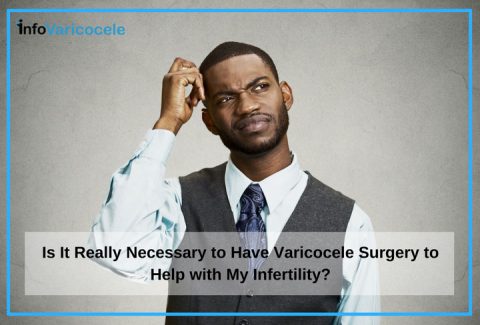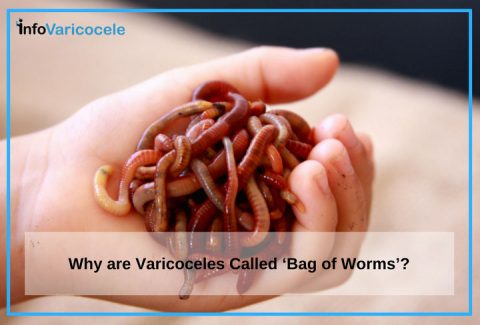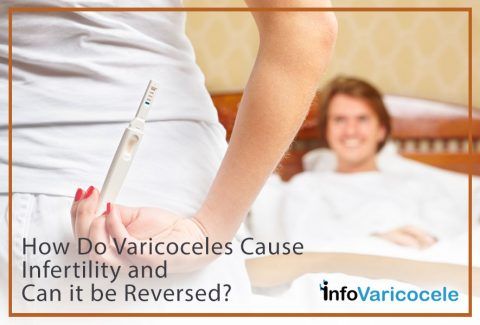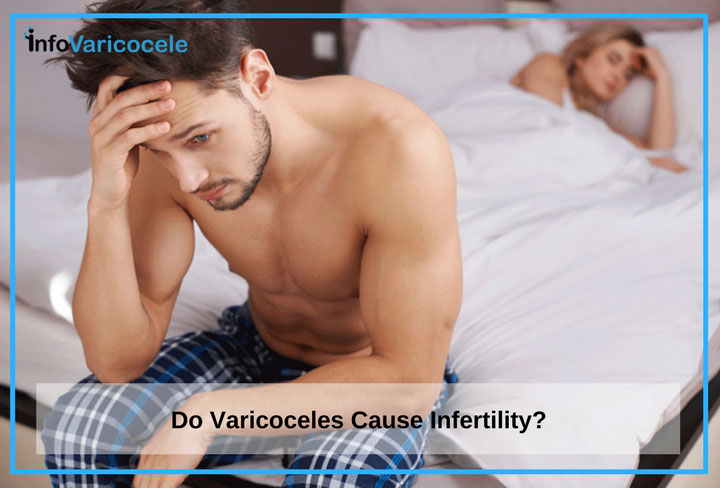
Many couples struggling with getting pregnant have asked the question “Do varicoceles cause infertility?” Studies suggest that varicoceles may be linked to some fertility problems in couples trying to conceive. In the past, it was often believed that infertility was primarily due to a woman’s inability to conceive, but more recent information indicates that many men who’ve been diagnosed with a varicocele are also found to be infertile. The fact is, infertile couples make up 10% – 15% of couples trying to have a baby.[i] Doctors define infertility as not being able to get pregnant after having regular unprotected intercourse for a year without conceiving.[ii]
Medical studies suggest:
- In up to 50% of couples who can’t conceive a child, the male partner is diagnosed with male factor infertility.
- A large portion of male factor infertility issues are related to varicoceles. Varicoceles are found in 40% of infertile men.[iii]
- In couples who have successfully had a child, but are having a difficult time conceiving a second time, the varicoceles infertility rate has been found to be as high as 81%.[i],[iv]
Causes of Male Infertility Include Varicocele
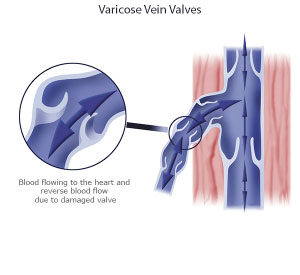 When men begin discussing infertility with their doctors, a varicocele is often at the top of the list of potential causes, as it’s the most common reason males have fertility issues.[v] Varicoceles cause blood to pool, which creates an elevated temperature.[v] A higher body temperature in the scrotum reduces the number of sperm and is a cause of abnormal sperm with low motility.[vi]
When men begin discussing infertility with their doctors, a varicocele is often at the top of the list of potential causes, as it’s the most common reason males have fertility issues.[v] Varicoceles cause blood to pool, which creates an elevated temperature.[v] A higher body temperature in the scrotum reduces the number of sperm and is a cause of abnormal sperm with low motility.[vi]
There are 4 ways varicocele can affect fertility:
- Low Sperm Count: Varicoceles are considered to be a cause for low sperm count because of the environment that is created, which is too warm for male reproductive organs to function well. There is a 40% drop in sperm count for every degree of elevated temperature in the scrotum and testis.[vii] Low sperm count affects almost 50% of those with male factor infertility.[viii]
- Lower Testosterone: Varicoceles have been linked to lower testosterone levels, which can affect sexual function.[ix]
- DNA Damage in Sperm: Varicoceles have been attributed to DNA damage in sperm. Studies suggest that men with varicocele have more damaged sperm than men who do not suffer from the problem.[x] Testicular inflammation, swollen veins in the scrotum, and abnormally developed testicles can cause abnormal sperm.[xi]
- Low Semen Quality: Varicocele is linked to imbalances in the body that cause lower semen quality. Quality semen is required for sperm to thrive and move.[xii] A fertility specialist will frequently test semen quality first, because it is often one of the first fertility factors affected by a varicocele.[xi]
It’s natural for men to worry about treatment options, but many find it comforting to learn that we now know how to treat varicocele infertility without surgery. Whatever treatment you and your doctor decide is right for you, treating varicocele through any of the available methods may result in:
- Increased sperm count.
- More high-quality sperm.
- More motile sperm.
- Better quality of semen.[xiii]
Success rates for pregnancy are greatly improved when men choose to correct varicoceles. Success rates for first-time pregnancies after treatment options range from 26% to 50%.[xiv] Varicocele embolization success rates stand solidly between 30% and 50%, just as in other treatments.[xiv]
Getting treatment for a varicocele doesn’t mean your partner will get pregnant right away. It may take several months — often between six to twelve — to get pregnant.[xiv] Part of the delay in time to conception is because it takes time for sperm count, quality, and motility to improve to a level that results in successful conception. That time is generally at least three months.[xiv] Doctors agree that it takes time for semen quality to improve. Studies indicate that 60% of men who undergo treatment for their varicocele see improvement in symptoms.[xv] All of this can help achieve pregnancy.
Other Factors to Consider
Fertility doctors will ask you a series of questions before recommending varicocele treatment to achieve pregnancy. There can be other reasons as to what causes male infertility such as specific environmental causes and lifestyle habits. Age is one factor that will be considered, as there may be preferred treatments for adolescents and others that are more suitable for older men.[xvi] Other factors that could affect a doctor’s recommendation for treatment may include the health and age of your partner, and other health conditions that could be affecting you.[xiv]
Correcting a varicocele is often one of the easiest solutions to overcoming male factor infertility and achieving the goal of becoming a father. Be sure to consider all of your varicocele treatment options. The only way to determine the best option for you is to understand all of your choices before you decide which one is most aligned with you and your partner’s goals.
Sources:
[i] http://www.ncbi.nlm.nih.gov/pmc/articles/PMC2664231/
[ii] http://www.medicinenet.com/script/main/art.asp?articlekey=3977
[iii] Jarow JP. Effects of varicocele on male fertility. Hum Reprod Update 2001;7:59–64 .
[iv] http://childrensnyp.org/mschony/adolescent-varicocele.html
[v] http://www.mayoclinic.org/diseases-conditions/male-infertility/basics/causes/CON-20033113
[vi] http://www.webmd.com/infertility-and-reproduction/varicocele-repair-for-infertility
[vii] http://www.parentingweekly.com/preconception/preconception_information/heat_and_male_infertility.htm
[viii] http://www.mayoclinic.org/diseasesconditions/varicocele/basics/complications/con-20024164
[ix] http://www.nyp.org/news/hospital/goldstein-varicoceles-testosterone.html [x] http://www.ncbi.nlm.nih.gov/pubmed/22809864
[xi] http://americanpregnancy.org/infertility/male-infertility/
[xii] http://www.ncbi.nlm.nih.gov/pmc/articles/PMC3249911/
[xiii] http://resolve.org/about-infertility/medical-conditions/male-factor-infertility-how-varicocele-repair-can-be-an-effective-treatment.html
[xiv] http://infertility.about.com/od/causesofinfertility/a/Varicocele-And-Infertility.htm
[xv] http://www.urologyhealth.org/urologic-conditions/varicoceles/after-treatment
[xvi] http://www.ncbi.nlm.nih.gov/pmc/articles/PMC2948392/
